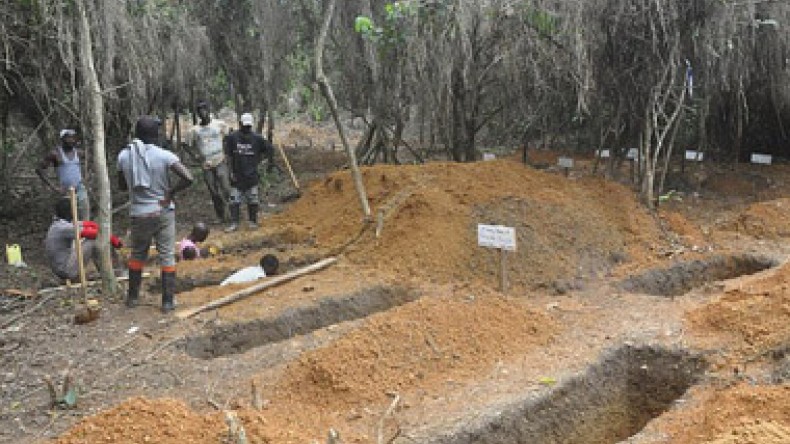
Ebola epidemic will explode by mid-December and kill tens of thousands of people, scientists warn
The Ebola epidemic devastating parts of West Africa will have killed tens of thousands of people by the middle of December unless urgent action is taken.
In a report published on October 24, scientists warn the window of opportunity to control the outbreak is 'rapidly closing,' the Daily Mail reports.
As a result, there could be 'calamitous repercussions,' unless international efforts to control the disease are substantially increased.
A team of U.S. researchers used mathematical modelling to predict infection rates in Liberia's most populated county, Montserrado.
They calculated that without extra help, as many as 171,000 people could succumb to Ebola by December 15, representing 12 per cent of an overall population of some 1.38 million.
In Montserrado alone, there could be more than 90,000 deaths by that time, many of them unreported.
A single infected individual could pass on the infection to an average of 2.49 people in Montserrado, the researchers calculated.
Lead researcher Professor Alison Galvani, from the School of Public Health at Yale University, said: 'Our predictions highlight the rapidly closing window of opportunity for controlling the outbreak and averting a catastrophic toll of new Ebola cases and deaths in the coming months.
'Although we might still be within the midst of what will ultimately be viewed as the early phase of the current outbreak, the possibility of averting calamitous repercussions from an initially delayed and insufficient response is quickly eroding.'
The news comes as the World Health Organization's emergency committee decided screening passengers for Ebola may have a 'limited effect' in stopping the spread of the virus.
The committee warned that 'resource demands may be significant' when screening incoming passengers, but that it is up to individual Governments to decide whether the measure is necessary.
Passengers are already screened as they leave Liberia, Sierra Leone and Guinea.
Writing in the journal The Lancet Infectious Diseases, the researchers warned some 97,940 cases of the disease could be averted if the international community stepped up control measures immediately, starting from October 31, according to their model.
This would require more Ebola treatment beds, a five-fold increase in the speed at which new cases are detected, and the allocation of protective kits to households of patients awaiting admission to clinics.
At best, just over 53,957 cases could be prevented if interventions are delayed until November 15, said the researchers.
Newsfeed
Videos






























